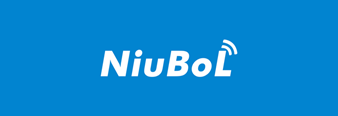

— Blogs —
—Products—
 Consumer hotline +8618073152920
Consumer hotline +8618073152920 WhatsApp:+8615367865107
Address:Room 102, District D, Houhu Industrial Park, Yuelu District, Changsha City, Hunan Province, China
The ecological environment of the farm needs real-time monitoring. Since the farm needs to adjust the meteorological environment stably and in a timely manner, it provides a more suitable growth environment and living conditions for the crops and organisms on the farm. Therefore, the farm needs the support and assistance of automatic weather station equipment.
Farmland climate and environment monitoring, farmland soil moisture monitoring and farmland drought monitoring are indispensable basic monitoring work in agricultural production. The monitoring of farmland climate, soil moisture and drought can provide production reference for the rational growth of crops and the rational use of water resources. By monitoring the farm climate, we can know what cro···
The advantages of photovoltaic automatic weather stations, professional data analysis, unattended and other characteristics can satisfy professional climate observation, making it extend to a wider range of applications.
weather station equipment can continuously monitor environmental parameters such as soil, water, air, wind, light, heat, temperature and humidity closely related to the growth of vegetation and crops, and realize automatic monitoring of comprehensive ecological information of facility agriculture and forest farms, and automatic monitoring of the environment. Control and intelligent management grea···
Weather station equipment is divided according to its use: photovoltaic/agriculture/transportation/airport/scenic area/campus weather station, etc.;
The automatic weather station is composed of a weather sensor, a microcomputer weather data collector, a power supply system, a radiation-proof ventilation hood, an all-weather protective box, a weather observation bracket, and a communication module.
Agricultural automatic weather stations can be used for all-weather on-site monitoring of more than a dozen meteorological elements such as wind speed, wind direction, rainfall, air temperature, air humidity, light intensity, soil temperature, soil moisture, evaporation, and atmospheric pressure.
The farmland climate monitoring system is an advanced agricultural production facility that integrates high, precise and cutting-edge technology in agricultural science and technology and automatic computer control technology. How to judge whether the automatic weather station is faulty?
Photovoltaic weather station is a weather station designed for photovoltaic power generation control. It monitors key factors such as solar panel surface temperature, total solar radiation, total solar radiation inclination, wind speed and direction, air temperature and humidity, and quantitatively outputs photovoltaic power generation meteorological environmental data. , Photoelectric conversion ···
3-in-1 soil sensors (soil temperature, soil moisture, conductivity) can measure the volume percentage of soil moisture, which is a soil moisture measurement method in line with current international standards. Suitable for soil moisture monitoring, water-saving irrigation, greenhouses, flowers and vegetables, grass pastures, plant cultivation, sewage treatment, precision agriculture

Screenshot, WhatsApp to identify the QR code
WhatsApp number:+8615367865107
(Click on WhatsApp to copy and add friends)